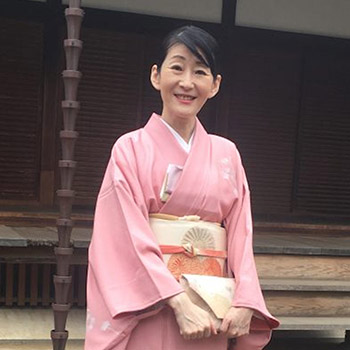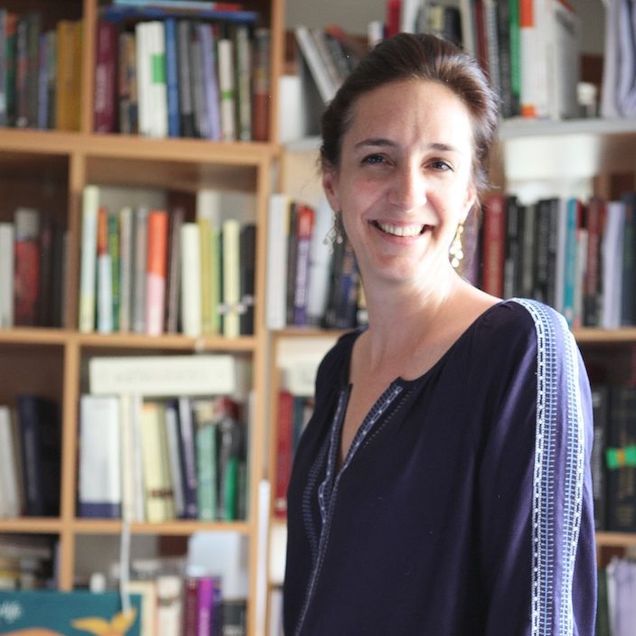Center for the Humanities Welcomes Visiting Scholars
Two visiting scholars, Kyoko Miwa and Laetitia Zecchini, are enriching the BU Center for the Humanities’ intellectual community as they undertake cutting-edge humanities research in our office suite. Miwa and Zecchini come to Boston from Japan and France, respectively.
 Miwa, sponsored by the American & New England Studies program, comes to BU from Toho University in Tokyo, where she teaches English language and English and U.S.-American literature courses. Typically, Miwa teaches students majoring in sciences, and in her English language courses, Miwa incorporates textbooks on scientific topics in an attempt to address her students’ existing interests. However, she also structures her seminars around the pressing topics of “gender equality and sexual diversity”––issues that have only become more critical as the population of women majoring in science at her home institution increases.
Miwa, sponsored by the American & New England Studies program, comes to BU from Toho University in Tokyo, where she teaches English language and English and U.S.-American literature courses. Typically, Miwa teaches students majoring in sciences, and in her English language courses, Miwa incorporates textbooks on scientific topics in an attempt to address her students’ existing interests. However, she also structures her seminars around the pressing topics of “gender equality and sexual diversity”––issues that have only become more critical as the population of women majoring in science at her home institution increases.
 Affiliated for the 2019/2020 academic year with the Department of World Languages & Literatures, Zecchini otherwise works at the National Centre for Scientific Research which is affiliated with the Sorbonne and with the École Normale Supérieure; in addition to her duties as a full-time researcher, she has led seminars in post-colonial literature and theory, the “practices and poetics of cosmopolitanism,” “cultural transfer,” and literary translation and has taught courses at other institutions in Hindi literature, South Asian Poetry, and countercultures in India.
Affiliated for the 2019/2020 academic year with the Department of World Languages & Literatures, Zecchini otherwise works at the National Centre for Scientific Research which is affiliated with the Sorbonne and with the École Normale Supérieure; in addition to her duties as a full-time researcher, she has led seminars in post-colonial literature and theory, the “practices and poetics of cosmopolitanism,” “cultural transfer,” and literary translation and has taught courses at other institutions in Hindi literature, South Asian Poetry, and countercultures in India.
During their tenure at BU, Miwa and Zecchini can devote their attention to their specialized research projects––an opportunity that they both relish.
Zecchini will focus on her Arts and Humanities Research Council-funded project on “writers’ organizations in the UK, South Africa, and India,” particularly “the PEN and issues of free speech and censorship.” “Since the PEN was part of the same intellectual constellation in India as the Congress for Cultural Freedom, funded by the CIA, I started delving into the history of the Cultural Cold War,” Zecchini said. “This gave me the idea for a new book, which I am very excited to start working on here.”
Miwa’s research will examine Edith Wharton’s representations of rural New England, including “people belonging to lower social classes than her own.” “I had been looking for an institution to concentrate on my research,” Miwa said, “And because my main concern is Edith Wharton, who lived in this area, I wanted to belong to an institution in New England.” Miwa hopes to conduct research at The Mount, Wharton’s home in Lenox, Massachusetts.
Both scholars remarked on the sense of community they have already experienced during their time in Boston. “I am inspired by the atmosphere of BU,” said Miwa, who has also spent time at the University of Mississippi. “The mere fact that I am exposed to and feel the atmosphere of New England—how the climate is, how people in this region talk and behave—gives me a sense of confidence to write and think about the literature of the U.S. North.”
“Displacement is necessarily productive,” said Zecchini. “Leaving familiar surroundings behind, including familiar academic surroundings, is not always comfortable, but it is always stimulating. I very much look forward to engaging with scholars here, learning from their approaches, and confronting my own work in response to these approaches.”
Zecchini will be delivering a lecture on November 13 as part of the WLL Colloquium and hosting a reading with poet Arvind Krishna Mehrotra at the Brookline Booksmith on Monday, November 18 at 7 p.m.
The Center is grateful to have them in our midst.